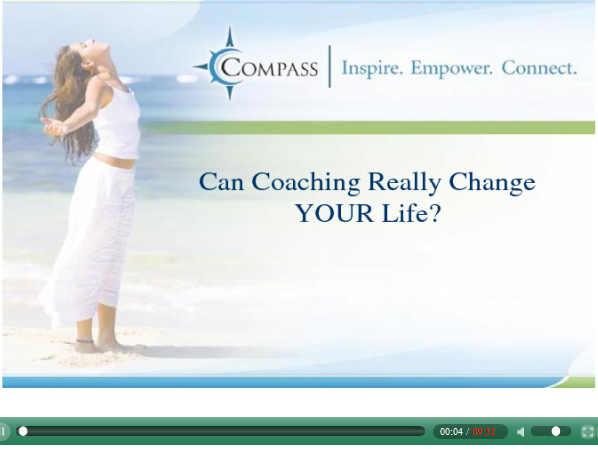
For a new executive, business or life coach, writing your first coaching bio can be pretty scary, because you don't have tons of experience or credentials yet, so you don't feel powerful when talking about what you do. Even for experienced coaches, writing a coaching bio can be daunting and you may be looking for help with it. My friend and colleague, Barbra Sundquist, MMC, wrote a great post for this blog on How to Write a Coaching Bio in Twenty Minutes and it has become one of our most popular posts, because who wouldn't like to get this uncomfortable job over and done, quickly?
But what if your coaching bio could actually sell your coaching for you?Bios are a powerful form of marketing and as you grow your business, you want to get even more power out of everything you do. In fact, it's ideal if you marketing brings you plenty of potential clients, especially if those clients are sales-ready. In other words, you don't want emails, texts, and/or phone calls from everybody on the planet, just they ones who are dying to hire you, right?
The following secrets, employed by search engine optimizers, copywriters, sales people and savvy coaches can help you attract potential coaching clients who may be ready to buy even before they talk to you – or who are ready to buy after a short conversation. You don’t need to use every secret in every bio, but great bios usually contain 3 or more of these secrets…
SECRET 1: Use the right words and phrases. The world’s greatest bio is worthless if nobody finds it, so your first job is to write for search engines, like Google, Yahoo and Bing, because people find coaches with search engines. Search engines change their search algorithms periodically and don’t share exactly what they are, but marketers have found that certain basic SEO (search engine optimization) practices can help you get found online. For example: Use keywords (words and phrases that people search for), especially long-tail keywords (very specific phrases), in your title, first and last sentences, as well as any highlighted lines (titles and bold text) and in hyperlinked text (text that you click to get to another page). An example of a long-tail keyword might be: “Life Coach, Jane Smith, White Plains, NY”. While you wouldn’t use exactly this phrase throughout your bio, with some creativity, you can use variations on it enough to get a search engine to send a searcher who just typed, “Life Coach White Plains NY” into the search box. People tend to search for coaches in their hometowns, so you can stand out quickly by including yours. (Bonus tip: People hire coaches, not companies, so list yourself by your name, not your business name.)
SECRET 2: Tell them what they want to know. Stop thinking of your bio as a biography of you and your experience/credentials and understand the only thing potential clients really want to know about you: "Can you help me?" Mostly share details about you that they want to know, i.e. Do you understand people like me? Have you been in my shoes? Have you helped someone like me? If your bio has lots of room, or if it has a second ‘details’ page, add more details about you further down. But for a short bio, just tell people what they most want to know: “I can help you reach your goal”.
SECRET 3: Write for your ideal client. Stop writing for everybody and write for just one person, instead. How? The simplest way is to pick an existing ideal client and write just for them. Before you do, ask that client what they most wanted to know before they hired you. Then show them your bio and ask them to critique it, so it says exactly what they would want to know. Does that sounds pushy? It's not, because your best clients are grateful to you. They are also high-functioners who love to give back. Don’t hesitate to give them that opportunity. And don’t worry that you’ll be excluding potential clients who are different. Most bios fail to grab attention from anyone because they are simply too vague.
SECRET 4: Use the magic word. While we’re talking about grabbing attention, here’s the simplest way to grab your reader’s attention: Use the word, YOU. Because our brains are wired to focus attention on what is most pertinent to us, personally. When a reader sees the word, "you", in a line of text, their brain naturally pays more attention. Think about it: the word, "you", probably grabbed your attention, just now.
SECRET 5: Customize it. One bio probably isn’t enough, so think of your website as more of a hub than a store front. I’ve had clients hire me without even a phone conversation, because they found me on specialty websites and memberships that mattered to them. The fact that I was interested in what interested them was enough to for them to say, “She’s the coach for me.” Use social networks, coach directories, and special-interest memberships as an opportunity to send potential clients to a landing page on your website to sign up for your coaching – but do give them a chance to talk to you, because usually they’ll want to do that before hiring you.
SECRET 6: Create curiosity. Great copywriters say that each sentence you write has but one purpose: to make readers want to read the next sentence. There are many ways to do this: Ask questions that your potential clients need to ask themselves. Use visual imagery. Use emotional words, or high-intensity words.
SECRET 7: Create trust. Multiple bios at several locations help your clients to research you. Create a consistent image, while tailoring your bios to each site. This also helps people to find you. Add your most important credentials, if credentials would matter to your potential clients. Graduation, certification and memberships from well-known coaching schools, or associations, can give you an edge. Someone who’s reading your bio on a coach directory, for instance, probably is getting to know you for the 1st time, so share what a stranger, who is searching for a coach, would want to know. On the other hand, someone visiting your website, probably already knows a little about you, so share a bit more. (Critical tip: Lying about your qualifications and credentials creates mistrust that can destroy your business, so don't claim credentials you don't have.)
SECRET 8: Let others do the selling for you. Most of us loathe bragging about ourselves, but hiding what’s great about us is a disservice to your potential clients. So let others do the persuading. This is what today’s consumers are already comfortable with anyway: reviews, ratings and testimonials. If you have the space, include some of your best testimonials in your bio. Even if your bio has to be short, try adding a short comment from a happy client. Coach certification can also help do some of the selling for you, because it's a stamp of approval from a trusted source.
SECRET 9: Be easy to find. Not only do you want your bios to be easy to find, you want your clients to be able to find YOU. Always add your webpage and contact information to your bios. Because a link to your website is SEO gold. This is reason enough to join every directory you can. It helps search engines find you and your website, which in turn, helps potential clients find and hire you. Coaches who work from home are often conflicted about how much contact information to share online. If this is a concern, here are some possibilities: Rent a post office box for your physical address. Get a business phone number or even a toll-free number. They’re inexpensive. In addition to your web address and email, share your city, business number and PO address, but never your home address.
SECRET 10: Be easy to see. Definitely add a photo of you, if you can. Don’t use your logo, except as a secondary image. Because people hire people, not logos. The best photo is a headshot of you, smiling. You don’t have to be young and beautiful, but in most cases, looking professional works best. It’s worth getting your photo professionally done.
SECRET 11: Let them know how easy it is to work with you. Most people have never hired a coach, before. They naturally feel a little confused about how to do that. Confused people don’t buy. Spell out a couple of easy steps, such as, “If you think you’d like to coach with me, contact me by email to set up a phone conversation. In your session, we’ll talk about your goals and how you can reach them. Usually, it’s a lot of fun. If I can help you further, I’ll tell you how, but there’s no pressure.”
SECRET 12: Tell them what to do next. This is critical. Tell people specifically what to do next to get started with you. In marketing, this is called a ‘call to action’. If that feels too directive, think of it as an invitation. Depending on where your bio is located, your call to action might be to visit your website. Or it might be to fill out a short form and email you, or simply telephone or text you. Decide what mode of contact would appeal to your ideal client and don’t be afraid to make a prominent call to action. You might even want to offer something of value to them, just for getting in touch. Examples: “Email me to receive a copy of my ‘Top Ten Easy Ways to Instantly Stop Procrastinating and Get Everything Done On Time’”. Or “Call me at this number to schedule a complimentary coaching consultation and, if you decide to continue, I’ll discount $50 from your first paid session.”
Want to see this approach in action? View a few listings on our new coach directory and notice which coaches grab your attention and make it easy for you to hire them.








 Guest blog post by
Guest blog post by 





